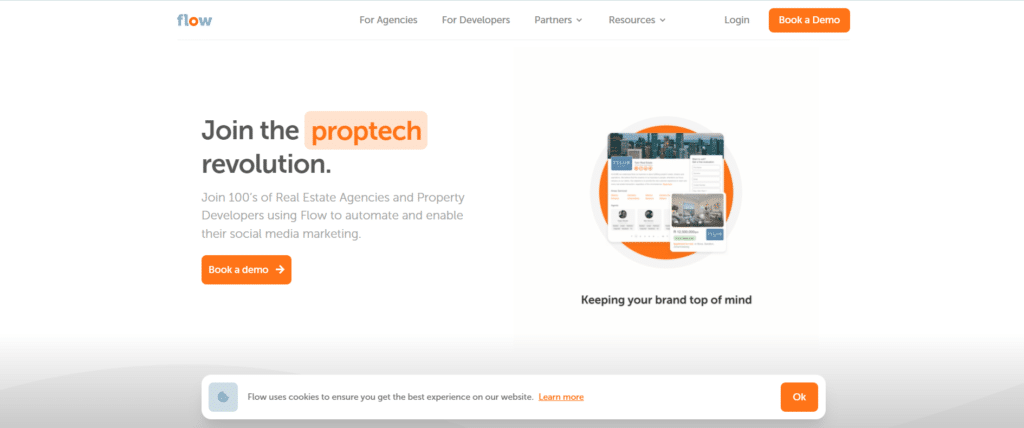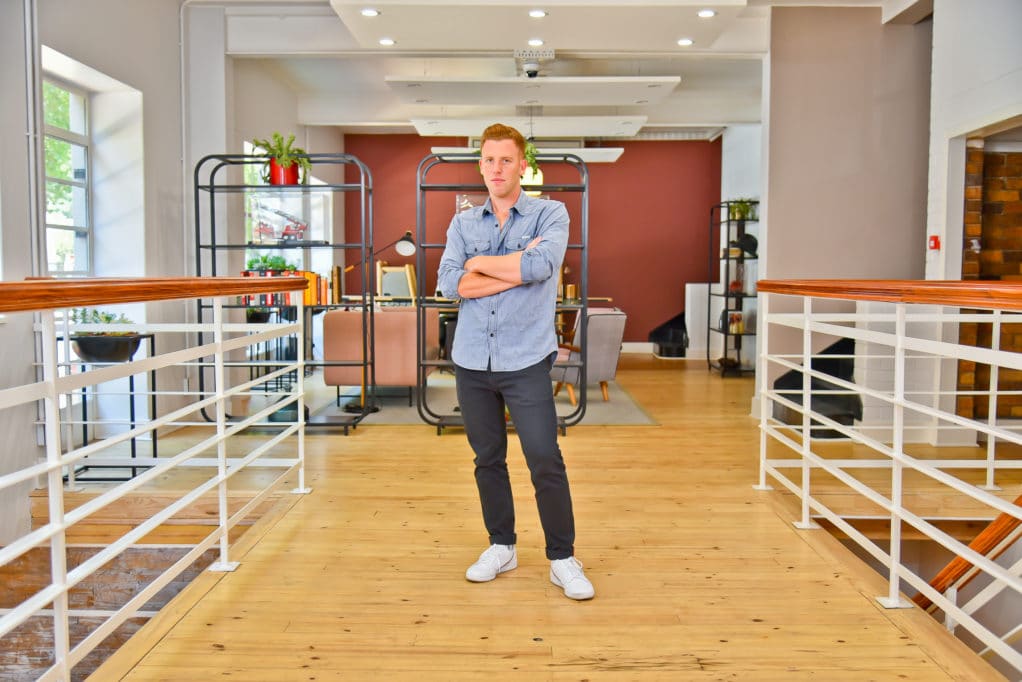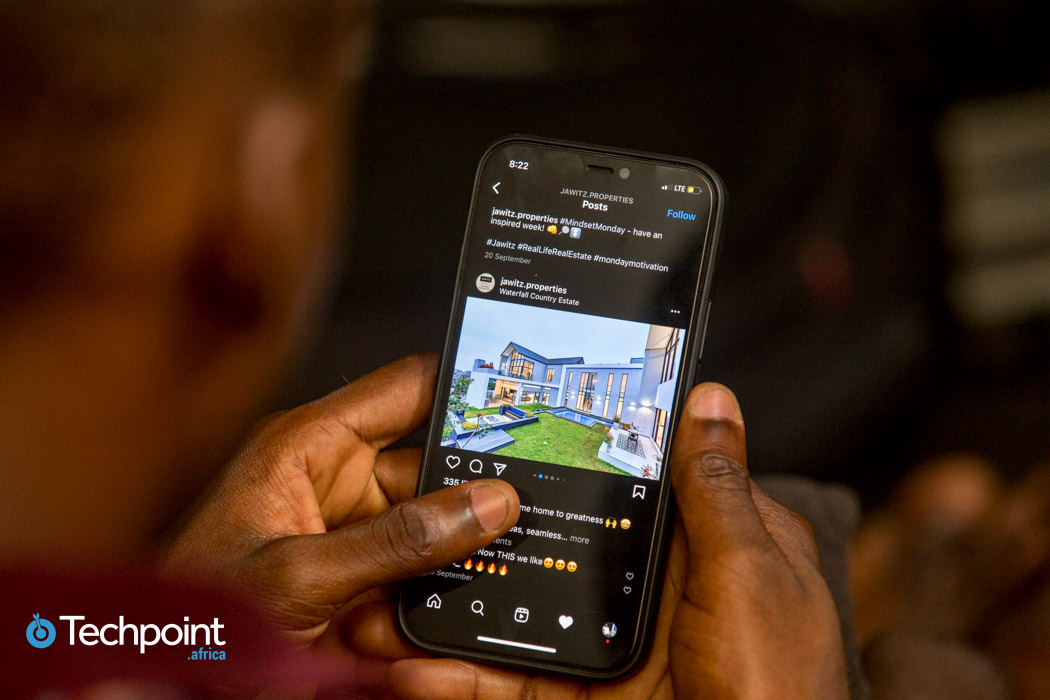On a cloudy day a few months ago, I sat down to chat with Gil Sperling and Daniel Levy, Co-founders of Flow.
At first, I couldn’t quite grasp what they were talking about — automating advertising for property developers and agents on Facebook, Instagram, and LinkedIn. I wondered why that was so important or if there’s a market here?
Let’s take a quick poll.
How many times have you picked up your phone today either to look through social media or just because? You couldn’t count, right?
Well, according to DataReportal, as of 2020, Kenyans spent 3 hours 42 minutes per day on social media; Nigerians, 3 hours 41 minutes; and South Africans, 3 hours 32 minutes.
Interestingly, the average human spent almost 7 hours per day on the Internet, but we could rationalise that based on the COVID-19 pandemic and lockdowns across the world. However, going by last year’s report, nothing changed much.
The average user spends about 30 minutes daily on Instagram.
But what does this have to do with Flow?

South Africa-based Flow uses an API that enables estate agencies and property developers to automate their advertising on Facebook, Instagram, and LinkedIn.
Flow’s API plugs into an estate agency or property developer’s listing management system. They currently have a commercial partnership with PropData, one of the largest software providers in that space in South Africa.
Explaining how this works to me, Levy said, “So, we pull in a feed of their listings and agents’ profiles. An agent logs in to Flow on the web and selects the properties they want to promote with their profile. They click a button, and their ad is automatically created.”
With roughly 2.89 billion monthly active users, Facebook is the biggest social network globally. As of December 2020, that number stood at 255 million in Africa. As of May 2021, there were 25.4 million Facebook users in South Africa — 42.5% of the population.
According to Statista, as of July 2021, South Africa had 6.03 million Instagram users and 9.15 million LinkedIn users, respectively.
The team said that 1.5 million people in South Africa had explored property listings through Flow in the last six months, and nine million buyers and tenants have been reached about agency brands and property listings in the past year via Flow.
The ad also leads to a customised landing page which could redirect the prospective buyer or tenant to either the agent’s WhatsApp number or SMS.
Essentially, there are four layers to this. Say you are an estate agent who has integrated Flow’s API into your website, to start an ad campaign, you will log in to Flow, select the listing you want to advertise, and voila! several million people can see your property.
Once a prospect clicks the link, they are redirected to a customised landing page or your proprietary CRM, which has been integrated.
Using an analogy, Sperling said, “So, a small business may use Mailchimp to automate their email. They are not gonna pull up Gmail or Outlook and cc 10,000 people. They are gonna just pop up Mailchimp, which allows them to scale their email efforts.
“Flow is a platform that allows property businesses to scale their Facebook and Instagram marketing. Without it, it’s very basic and rudimentary and not tapping into the potential.”
A little background before we continue

In 2015, Sperling and Levy’s adtech startup, Popimedia, had just been acquired by French Communications group, Publicis.
Popimedia had grown to become the sole African official Facebook Marketing Partner after about three years of building a version of Facebook’s current advertising platform.
The duo met just as Sperling was finishing his training as an engineer at the University of Witwatersrand, in Johannesburg, South Africa, in 2006. A year later, Popimedia was founded.
Although they stayed on for a while to steady the ship, in 2019, they officially left to found Flow as it is now.
But why proptech?
Citing an archaic and antiquated property industry, Levy, a lawyer with some background in psychology, says,
“I come from a property family, and I’ve always felt that running and managing property and tenants and things of that nature has always been very antiquated and hasn’t changed over a significant period. And through my frustrations of doing that, I’ve always kind of wanted to improve that in some way, shape, or form.”
With their varied skill sets, they tried to find an industry where technology could be deployed and be a good fit.
“Property is one of the largest industries on the planet yet the most leaguered. It’s topsy-turvy, as I call it. You’ve got guys who run and manage assets worth billions of dollars, and the management invariably has very few people doing the work.
“Technology usually follows industries with significant manpower behind them and goes in there to create efficiencies. But, in property, they just kinda throw resources at the problem.”
With their adtech background, this was definitely a good fit.
But it wasn’t this straightforward.
Previous iterations and current challenges

In 2017, Levy and Sperling launched a previous reincarnation of Flow, but as an app that rewards tenants for paying their rent on time.
“We built an app in the early part of the business that rewarded tenants for paying rent on time and looking after the place, and that was always the path to open up search — an ability for people to find property — which is what the business is today.
“But the big learning that we had at that time was that it’s important to build a product to solve a massive problem. The problem that we were solving at that time was big, but it was not valuable enough for landlords.”
Interestingly, Flow raised $1.47 million from Kalon Ventures and CRE Venture Capital in January 2019 while pushing this iteration.
“Backing the jockey is criteria number one for VCs because whether the idea would work or not, a very strong entrepreneur behind it would pivot and do whatever is required to succeed. So I think that our VCs initially primarily backed Daniel and my experience and reputation.
“The business model behind it was not strong enough, and that created a big pivot for us. Really, what launched the successful part of our journey was setting that aside and focusing on the search part through the social integration,” Sperling said.
But beyond a pivot, Sperling believes that a big problem is playing in a space that is “the most valuable industry in the world, yet the most archaic and most traditional. When we are working with estate agents, they are very good at their job — being the relationship between the buyer and the seller — but they are very traditional in their sense. We have to do a lot of handholding.”
Another challenge that Levy sees as more of a blessing is the COVID-19 pandemic. With most of the team working from home, and Levy and Sperling themselves working out of a hotel, chuckling, he told me he would rather deal with hoteliers than commercial landlords.
So let’s talk numbers; where’s the money?

Levy said that even though it is not their main focus currently, Flow is on the cusp of profitability.
“There are many levers at this stage that could make you profitable; it’s just that that’s not the major metric. We are more inclined to make sure that we are getting the growth, and you will always sacrifice profit, if you will, by virtue of getting growth because you can plough profits back into growth, and then you can move to the top.
“We understand the model. We understand what it would cost us to get new clients. And so, to that end, we are all about growth. The profitability is cream on the top.”
But how does the money come in?
Flow makes money from a percentage of what clients pay for their services, a model they employed at Popimedia.
“We’ve always approached our business model on the basis that it’s very simplistic for our clients to understand. They get A to Z of our offering, and there’s a percentage of the marketing spin.
“We are incentivised to ensure that they get their ROI, and when they get it, they will increase the amount of money that they’ll spend within the platform because they are inextricably linked.”
According to Levy, they currently have about 100 clients with about 4,000 estate agents on the other side, a number he says is 10% of estate agents in the country.
“In contextual terms, in South Africa, there are about 4,500, around 5,000 estate agency offices and 40,000 estate agents. So we are probably about 10% of the estate agents.”
And according to him, there are about 300 to 400,000 buyers and tenants driven to agents on the platform monthly.
Present and future conquests

Flow is looking at expanding beyond South Africa.
“We are actually on a few POCs (Proof of Concepts) and trials with some Australian businesses. We’ve had some good movement there. We are in early talks with someone in Egypt as well. Some regions in Africa are definitely a market for us. So the intention is to be as global as possible, where it makes sense,” quipped Sperling.
Yesterday, December 7, 2021, the company announced an expansion into Australia with integrations with real estate CRMs AgentBox and Box+Dice which Flow says gives it access to 6300 Australian estate agent offices It has also partenered with an Australian proptech, MRI Software
Currently, however, as Levy told me, they’ve moved beyond South Africa’s shores, serving clients who want to reach Nigerians and Zimbabweans, and, on the flip side, Mauritian clients looking to get South African clients.
“So we are naturally piggybacking off the social platform to take the properties to the people.”
Ultimately, the plan is to be “the platform that over time unlocks more and more value in the chain.”
Of course, several things under the hood would be revealed in due time, but the focus is currently on the marketing platform.
“Ultimately, there’s a bigger platform here where we hope to better connect buyers and agents and better enable them to make their buying journey way more efficient and valuable,” Sperling concluded.
For now, they are focusing on growing their platform and navigating what they call a politically charged industry with a different perspective.










